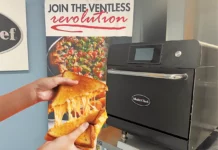
Article contributed by Mike Berman, COO, Day & Nite/All Service, with Tia Tassava
With now more than 100,000 tragically solitary coronavirus deaths and over 40 million newly unemployed in our nation, Joseph Stalin’s “If only one man dies of hunger, this is a tragedy. If millions die, that’s only a statistic” isn’t a callous observation from a brutal dictator but a call for individual and collective purposeful action.
As quarantine weeks dragged into months, as talk turned to elusive phrases like “new normal,” and as the country is now in various phases of reopening, falling short of necessary steely-eyed determination to best control and overcome all of 2020’s adversity is understandable.
We now bring our 9th weekly crisis management column, each edition intended to help the hospitality industry rise above the truly awful circumstances, so that none of us become statistics. More than dispensing advice, these weekly columns feature proven best practices the Day & Nite family of companies has employed. Our practices are not only to maintain its industry-leading position but also to bring needed innovation to an industry more in need of it than ever. Among the many measures of Day & Nite/All Service/Popular Plumbing’s success is through today, the company has not laid off a single employee despite the apparent reduction in overall business volume. For us, for hospitality and you, we submit “the new normal” is what we choose to make of it, what it will be, and not something for us to adjust to.
Controlling one’s destiny is never easy, especially in the face of a national economic and health crisis. That’s why it’s called crisis management and why crisis management’s playbook is quite different from traditional business rules. Mixing in fundamentals covered in prior weeks with additional concepts and actions, best practices for your happening to things vs. allowing (more) things to happen to you include:
Sacrifices
Having already established your business strategy, guided by a philosophical and operational compass, establish absolute lines that will not be crossed, recognizing that anything outside those rigid lines may be, and quite likely, might be sacrificed. Effective crisis management is built around maintaining a solid core of principles and identity. Everything else a luxury.
Safety, Safety, Safety
If total commitment to environmental, workplace, guest, employee and food safety do not land at the center of your absolute core, stop reading now, as you’re ultimately going to become a statistic. As a necessary strategy, safety can no longer be a matter of compliance or purchases to be made from the lowest bid on things you know you need to now do. Even more important, effective safety strategies are anything but quick-fixes. Comprehensive, perpetual, engineered holistic safety strategies represent the baseline. This baseline is not just for surviving, but thriving in the months and years to come.
Inspiring Safety Confidence
Doing the right things are only part of the battle, in our strong view, even less than half of it. Employees and the public must have a full sense that your commitment to safety is unmatched, and you must promote all your safety initiatives in respectful, empathetic, yet unambiguous ways. Good enough does not inspire, especially when the stakes are so high. Commitment to inspiring confidence is light-years from compliance. Here is a simple exercise to determine how close you might be genuinely inspiring requisite confidence: list out everything you have already done or plan to do in the next 30 days to bolster your safety programs. Then visit dnasperformancesolutions.net and compare your list to what you see from Day & Nite Performance Solutions.
Decisions, Not Choices
In his landmark 1970 book Future Shock, Alvin Toffler introduced the concept of choice overload. Since that time, many studies have further validated overchoice’s ill effects even under the most predictable circumstances. Choice overload is toxic in crisis management, particularly when one is pressed to take fast action, let alone for a rather new subject or where one is not an expert.
Now is not the time to choose; instead, decision rules the day. The best decisions will be based on your strategy, established lines of sacrifice, guided by an uncompromising vision of who and where you want to be. You are working from an ideal world scenario up until this point, stay there because the real world will enter soon enough. But without following this order, you will surely sacrifice the wrong things, lose control for your destiny, and have higher odds of becoming a statistic over a success story.
Economics
As promised, the real world now enters this picture. No one ever starts with an infinite budget, and certainly, financial pressures loom far more today than ever before. Unfortunately, too many begin this process with budget restrictions in mind and fail to achieve anything close to meeting objectives. At one time or another, whether in business or our personal lives, we have all experienced buyer’s remorse. Buyer’s remorse is the dreaded outcome of choosing rather than truly deciding or making a decision from a purely economic standpoint. Crisis management’s best practice is getting closer to your best, the best-fit true business partners, and thinning the herd of capable but less aligned vendors.
Since its inception, the Day & Nite family of companies has been a central player in the hospitality industry. The company’s historical, current, and future success is entirely dependent on hospitality’s health and vitality. Accordingly, Day & Nite Performance Solutions portfolio of high-impact thoroughly engineered hospitality solutions is designed to propel the industry economically. We also live in the real world where practical economic forces loom large. Our ability to simultaneously innovate and retain full employment is a function of practicing everything outlined in this piece as well as each of the previous eight weekly Total Food Service columns.
COVID-19 is anything but a singular event that will eventually fade. Just as the horrors of 9-11 have altered the way we think about public safety, COVID-19 will do the same for how we function as a society. Of course, Joseph Stalin was wrong; coronavirus’s brutality is unspeakable. Yet history shows his cold calculus is no less accurate. Indeed, it is in all of our hands and our control; whether we are to become yet another statistic or catalysts for happening to things.























